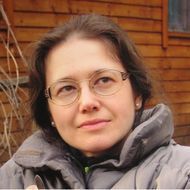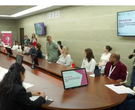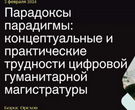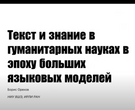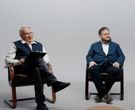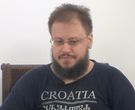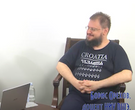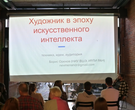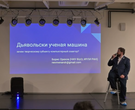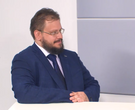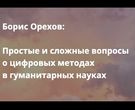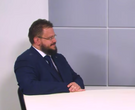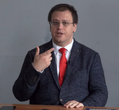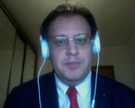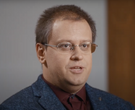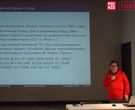- A
- A
- A
- АБB
- АБB
- АБB
- А
- А
- А
- А
- А
- Национальный исследовательский университет «Высшая школа экономики»
- Факультет гуманитарных наук
- Школа лингвистики
- Мероприятия
- Курс лекций «Конструкционные подходы к языковым изменениям» профессора Мартина Хилперта
-
Школа
- О школе
- Сотрудники
- Семинары
-
Исследовательские подразделения
-
- Международная лаборатория языковой конвергенции
- Центр «Русский как иностранный»
- Центр цифровых гуманитарных исследований
- Центр языка и мозга
- Лаборатория по формальным моделям в лингвистике
- Лаборатория «Корпусные исследования»
- Лаборатория языков Кавказа
- Лаборатория учебных корпусов
- Лаборатория теоретической и полевой фольклористики
- Лаборатория социогуманитарных исследований Севера и Арктики
-
-
Проекты
-
Проекты сотрудников
-
Проекты студентов и аспирантов
-
Завершённые проекты
- Некомпозициональные конструкции в эритажном русском
- Компьютерные и лингвистические ресурсы для поддержки шугнанского языка
- Лингвоспецифическая разметка китайских текстов в Русско-китайском параллельном корпусе НКРЯ
- Цифровой архив: создание корпуса журнала "Отечественные записки"
- Создание лингвокультурологического подкаста о России для иностранцев «Yellow Blue Bus» (Я люблю вас)
- База данных русских идиом
- Компьютерные и корпусные инструменты для иранистических исследований
- Русский разговорный клуб
- Шугнанские глаголы в типологическом освещении
- Создание академического онлайн-словаря персидского языка
-
- Международное сотрудничество
- Экспедиции
- Ресурсы
- Препринты
- Наша книжная полка
-
Образовательные программы
- Бакалаврская программа «Фундаментальная и компьютерная лингвистика»
- Магистерская программа «Компьютерная лингвистика»
- Магистерская программа «Лингвистическая теория и описание языка»
- Магистерская программа «Русский как иностранный во взаимодействии языков и культур»
- Магистерская программа «Цифровые методы в гуманитарных науках»
- Аспирантская школа по филологическим наукам
Адрес: 105066, г. Москва,
Старая Басманная ул., д. 21/4
Телефон: +7 (495) 772-95-90 доб. 22734
E-mail: ling@hse.ru
Редакторы сайта — Наталья Борисовна Пименова, Максим Олегович Бажуков, Константин Евгеньевич Сатдаров
- Международная лаборатория языковой конвергенции
- Лаборатория «Корпусные исследования»
- Лаборатория по формальным моделям в лингвистике
- Лаборатория языков Кавказа
- Лаборатория социогуманитарных исследований Севера и Арктики
- Научно-учебная лаборатория учебных корпусов
- Центр «Русский как иностранный»
- Научно-учебные группы
- Каталог проектов по компьютерной лингвистике
- Проекты, поддерживаемые грантами
- Русский язык для всех
- Лингвистический кружок для школьников
- Лингвистика в Центре открытого образования
Школа лингвистики была образована в декабре 2014 года. Сотрудники школы преподают на образовательных программах по теоретической и компьютерной лингвистике в бакалавриате и магистратуре. Лингвистика, которой занимаются в школе, — это не только знание иностранных языков, но прежде всего наука о языке и о способах его моделирования. Научные группы школы занимаются исследованиями в области типологии, социолингвистики и ареальной лингвистики, корпусной лингвистики и лексикографии, древних языков и истории языка. Кроме того, в школе создаются лингвистические технологии и ресурсы: корпуса, обучающие тренажеры, словари и тезаурусы, технологии для электронного представления текстов культурного наследия.
Linguistica Uralica. 2025. Vol. 61. No. 2. P. 106-130.
Марченко И. А., Ронько Р. В.
В кн.: Исследования по славянской диалектологии. Выпуск 25. Т. 25. М.: Институт славяноведения РАН, 2025. Гл. 5. С. 236-260.
arxiv.org. Computer Science. Cornell University, 2024

Курс лекций «Конструкционные подходы к языковым изменениям» профессора Мартина Хилперта
7 ноября и 9 ноября состоится курс лекций «Конструкционные подходы к языковым изменениям» профессора университета Нойшателя Мартина Хилперта (Martin Hilpert) в Школе лингвистики НИУ ВШЭ.
Расписание лекций:
7 ноября с 18.10 до 21.00, ауд. 502.
9 ноября с 18.10 до 21.00, ауд. 501.
Лекции будут прочитаны по-английски.
Ниже приводятся аннотации к каждой встрече.
===========================
Constructional approaches to language change
These four lectures will present an approach to historical linguistics from the perspective of usage-based Construction Grammar. Until quite recently, Construction Grammar has been a theory of language that has been applied exclusively to language in synchrony. However, a growing body of research is starting to explore its implications for diachronic research. In this course, the ideas of 'constructionalization' and 'constructional change' will be presented as new ways of looking at diachronic processes of language change. I will explore what different kinds of processes there are, what cognitive mechanisms they are based on, and how they unfold in morphology and syntax.
Lecture 1: Construction grammar and language change
In the first lecture, I will address the following questions. What is Construction Grammar and how does it relate to aspects of language change? What is different about a constructional approach to historical language data? What kinds of phenomena are analyzed by constructional approaches to language change?
Lecture 2: Constructional change, grammatical constructionalization and lexical constructionalization
The second lecture will present central notions that have been developed within constructional approaches to language change. Of particular importance will be Traugott & Trousdale's framework of grammatical and lexical constructionalization. I will compare their ideas to concepts in grammaticalization theory.
Lecture 3: Corpus-based methods for the analysis of constructional change
The third lecture will go over a number of case studies that illustrate the theoretical concepts from the first two lectures. I will explore the role that diachronic corpora play for the analysis of constructional change, and I will present different quantitative corpus-linguistic methods that are particularly useful for the study of language change from a constructional point of view.
Lecture 4: Three open questions in diachronic construction grammar
The final lecture will explore the current frontiers of constructional research on language change. It will address several open questions, which are currently under discussion in the research community and for which no wide consensus has been reached yet. I will outline several avenues for future constructional research.
- О ВЫШКЕ
- Цифры и факты
- Руководство и структура
- Устойчивое развитие в НИУ ВШЭ
- Преподаватели и сотрудники
- Корпуса и общежития
- Закупки
- Обращения граждан в НИУ ВШЭ
- Фонд целевого капитала
- Противодействие коррупции
- Сведения о доходах, расходах, об имуществе и обязательствах имущественного характера
- Сведения об образовательной организации
- Людям с ограниченными возможностями здоровья
- Единая платежная страница
- Работа в Вышке
- ОБРАЗОВАНИЕ
- Лицей
- Довузовская подготовка
- Олимпиады
- Прием в бакалавриат
- Вышка+
- Прием в магистратуру
- Аспирантура
- Дополнительное образование
- Центр развития карьеры
- Бизнес-инкубатор ВШЭ
- Образовательные партнерства
- Обратная связь и взаимодействие с получателями услуг
-
http://www.minobrnauki.gov.ru/
Министерство науки и высшего образования РФ
-
https://edu.gov.ru/
Министерство просвещения РФ
-
http://www.edu.ru
Федеральный портал «Российское образование»
-
https://elearning.hse.ru/mooc
Массовые открытые онлайн-курсы
- © НИУ ВШЭ 1993–2026 Адреса и контакты Условия использования материалов Политика конфиденциальности Карта сайта
- Редактору


